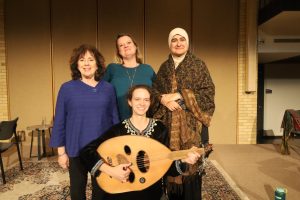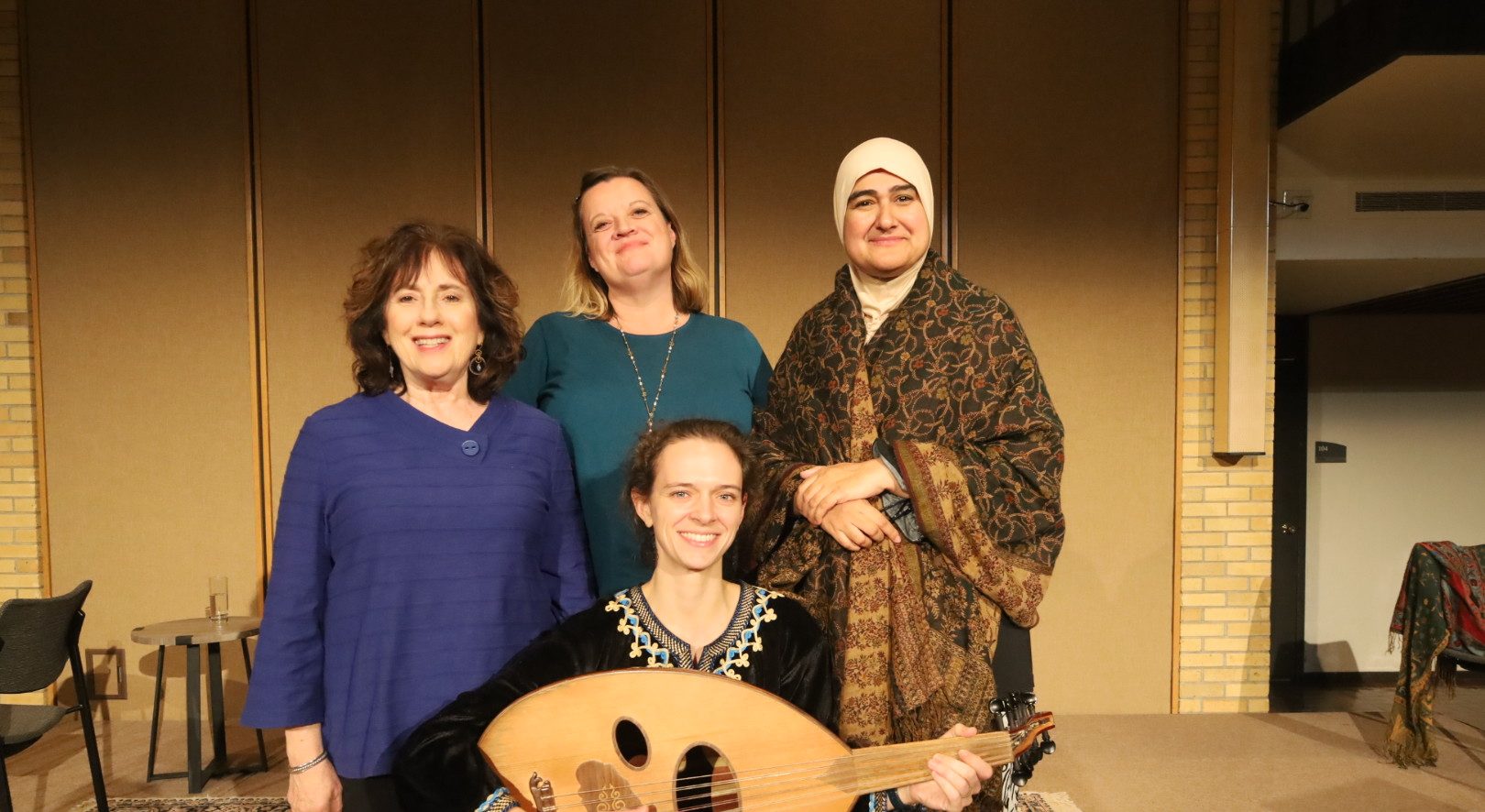Speaking in equal parts with her hands, face, and voice, Rohina Malik addressed a crowd of faculty and students gathered in Jones A/B this Monday evening.
She stood rooted and confident, never erring in her position at the front of the room. Her voice changed suddenly, adopting an accent and addressing an individual, rather than the crowd standing in front of her.
Over the next five minutes, Malik told a story of cultural identity, chocolate chai and a violent instance of islamophobia at a wedding. She combined narrative and performance elements to transform a true, personal story of interfaith violence into a dramatic dialogue where Malik took on the role of another character with a similar experience.
The story was an excerpt from Malik’s one woman show “Unveiled,” which she wrote in response to instances of islamophobia she and her friends had experienced following 9/11, moments which she described as ranging from “silly to bone-chilling.”
Following the story, Malik and her colleague Kim Schultz encouraged the crowd to turn to those seated next to them and share an oral story of a time they had experienced a moment of connection or division with someone who came from a different cultural tradition than their own.
The stories the audience shared garnered laughs, knowing nods and even tears.
“I didn’t think it was possible to write a masterpiece in seven minutes, but here we are,” said Schultz in response to one student’s shared story.

Malik and Schultz were here on residency to hold two main events – firstly, the storytelling workshop held Monday evening. Secondly, they, along with two other acclaimed female storytellers from different cultural traditions, performed a play for the Concordia community on Tuesday Oct 18 entitled “Keeping Faith: Sisters of Story.”
“We came together as theater artists after the election of 2016. We felt like there was so much hatred. People had been emboldened to be open with their hate,” said Malik, speaking in a quiet, intense tone, as though sharing a secret. “We thought there has to be something we can do. That’s the role of the artist.”
Malik, who comes from a Muslim faith background, reached out to Schultz, an improv teacher and self-proclaimed “bad Christian,” as well as Susan Stone, a Jewish oral storyteller and Lucia Thomas, a Buddhist violinist and instrumentalist.
“I believe in my heart that people will see how much commonality we have in the different faith traditions,” said Malik. “Especially with Islam, Judaism and Christianity, the three Abrahamic faiths – there’s so much crossover there. And that’s what the play was born out of.”
Since 2016, the four artists have been invited to perform Sisters of Story on stages all over the country. Their Tuesday night performance in Concordia’s Centrum was the first performance the artists have been able to attend since the start of the pandemic’s presence nationally in 2020.
The performance was done in collaboration with the Dovre center for faith and learning as well as the interfaith program on campus. The performance is one in a series of events that Dr. Michael Chan, the Executive Director of Faith and Learning on campus, has been working to organize which address the question he poses of “how do we build a more trustworthy world?”
For Schultz, this question is answered through the act of oral storytelling.
“Every single person is a storyteller, whether their culture acknowledges that or not,” said Schultz. “It’s a natural act, one which requires a lot of vulnerability and trust.”
Shultz posits that through storytelling, we can build empathy and actually change brain chemistry due to the release of a neurochemical called oxytocin that releases during the act of storytelling.
By sharing stories and in equal part listening to them, we can quite literally change people’s minds.

